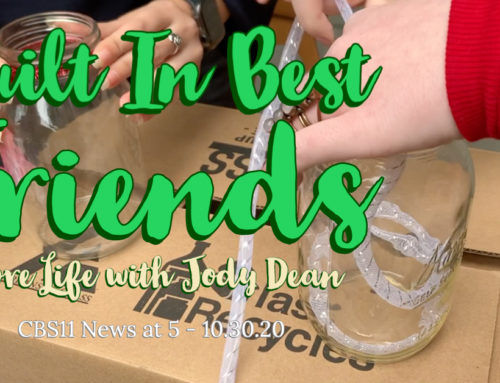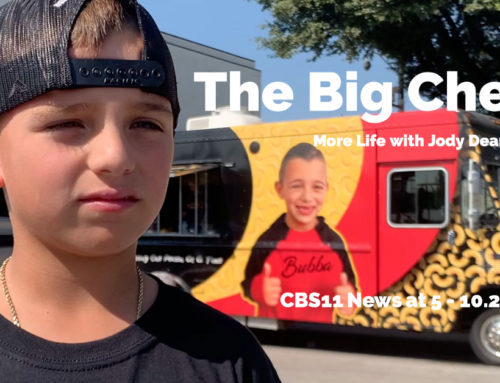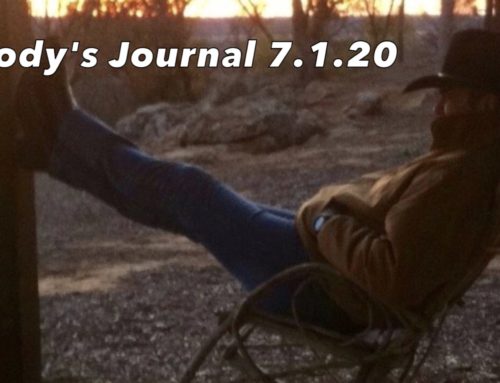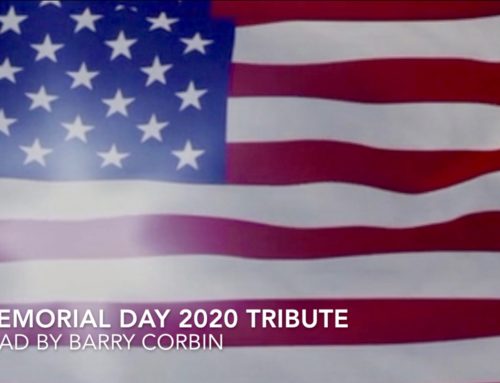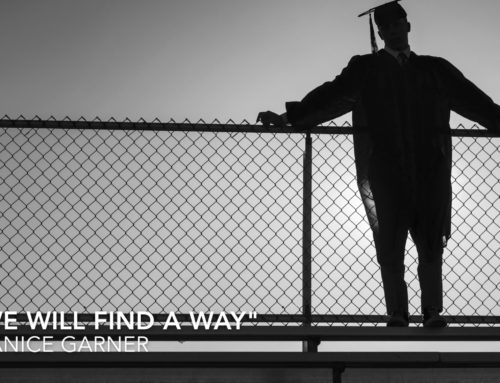Our house on Bilglade had two television sets.
The one in the living room that handn’t worked in a long time, and the one in the den on the carpet square, which did. When we moved into that house in 1966, it was a black & white set. We didn’t get a color TV until 1968.
The reason it sat on a carpet square was so we could turn it around and watch it from the kitchen during dinner (who am I to tell my daughter to put her phone down while we’re eating?) But we always made sure we were finished with our plate so we could swing it around and watch All In the Family in the den.
That was Pop’s favorite show. The problem was that he never got his head around the idea that the joke was usually on Archie. To Pop, Archie Bunker served as a spokesman.
I was adopted at birth, and raised as an only child after my older sister died at age 12. School teachers on my adoptive mother’s side, salesmen on my father’s side. And all from the South. Those roots ran deep, too. An adoptive ancestor rode with William Quantrill, one of the bloodiest Confederate guerrillas in the Civil War. By marriage, Robert E. Lee was a distant relative. My maternal grandfather’s family had owned a plantation near Midway, Texas. My great-grandfather had owned slaves.

My adoptive mom, 1920. The gentleman on the left was named Enoch, a former slave from her grandfather’s plantation.
And though I wouldn’t have used the word then, race played a huge role in my family’s history.
Sorry, but there’s no calling it anything but what it was. Racism. Oh, it wasn’t angry or bitter or violent, or anything like that. The people I grew up with wouldn’t have dreamed of calling it that. They would have said they weren’t even being mean. It can’t be softened, though, because that’s what it was. Condescension. Paternalism. Sort of an acceptance without an acknowledgment.
There was nothing overt about it, at least if you don’t count the times Pop would grab a book and quote Lincoln about saving the Union without freeing the Negroes if the president could’ve. He loved that quote. Treated it like scripture. It never made sense to me, really. Here was a man who’d fought the Nazis through Europe, but at minimum seemed to look down on others. That didn’t compute. Partly because of the arguments to which Pop and I would routinely descend, my buddies began to referring to me as Meathead. Michael Stivic, you stuck me for life.
I didn’t find out until much later, but my birth family couldn’t have been more different. My biological mother can make the most progressive of liberals blush, and the stories suggest there was no boundary my birth-father would not push. Maybe it was that, for I surely have come to appreciate the contributions of nature in relation to nurture. But even if there is DNA for being observant, anyone could have seen the contradictions – or so little me thought.
Not that anyone used those words around little me. It wasn’t that they never used them, because I remember slips of the tongue, too, followed by fast corrections. Neh-gruhs. Colored-Town. That’s what they’d let the little ears hear. And it never made sense. Mimi had a housekeeper who would come Wednesdays. Cleo was part of our family. Fernando did the yard on Saturdays. Lord, how I loved to play with that man. Mimi’s house wasn’t any bigger than Cleo’s, nor was her car any nicer than the one Fernando used to haul around a mower sticking out of his trunk. No one I knew would ever remotely use those words, at least not loudly. But even a 7-year-old in the back seat could hear that their neighborhoods were on the other side of San Saba. “Their” streets weren’t as nice. We didn’t see “them” in the store, or on Sunday mornings. At least not where we went.
The sentiment was always expressed with resignation, not a sense of appropriateness. As if what was, was how it was supposed to be – until the time it wasn’t anymore. My grown-ups were good, generous, God-fearing people who were kind to everyone they came in contact with. They understood lack and injustice first-hand. Whatever prejudices they had, they thought of as benign – which we all think until we become aware enough to know there’s no such thing. What some see as relatively harmless others find deeply hurtful. My grown-ups encouraged an understanding of that, too – but how often we all miss things, even when right under our very noses.
I was Church of Christ, because my mom and Mimi were. Pop was Baptist, but never went until later when he got low sick. Like I heard a million times, Pop also considered our denomination “the people who think you’re the only ones going to heaven”. But there was no litmus test for who I could play with. My backyard neighbor was Nikki Levy, and she and I put on puppet shows in elementary school. If we weren’t building sets, I was learning to play chess at her house. By 5th Grade she spoke three languages. Her brother David loved hockey and we used to play in his drive way. I envied his scale model slot cars, and the neighborhood actually liked his saxophone practice. We often found ourselves at their synagogue for events and performances. Where or how any of my friends worshipped never really came up. Not what you’d predict from people who attended a church that thought pianos would send everyone to hell. But Mom taught me Jesus Loves the Little Children like she believed it.
All the little children. Go figure.
Pop sold flags and banners, and always asked younger buyers what they intended to do with Old Glory. What with the hippies and all, Pop thought he had to. What people wanted with the Stars and Bars never came up. ‘Two years, our summer driving vacations took us through the heart of Dixie, where I think we visited every Civil War battlefield from the Mississippi to Gettysburg twice. At one point I think I had a personal goal of buying a souvenir toy cannon at each. But when I got home to play soldier with Skipper Shook, I always picked Blue. I saw separate drinking fountains when they weren’t museum exhibits. My daughter shakes her head when I tell her that when I was little, black people could only go to the Fair or Stock Show on one specific day during the run of the events. She just can’t get it. Neither did I. I wanted to be on the side that freed people. No one said a word when I wanted to be Grant.
That was part of the contradiction, you see. Here was this family that would get misty over Bardstown, Kentucky’s outdoor amphitheater production of The Stephen Foster Story and then make sure we didn’t miss Roots or Miss Jean Pittman. The Old South was what and where they came from, but all would have horrified had I ever shown up in shoe polish – regardless of Al Jolson. Mom would tell the story about how when the slaves were freed, most stayed to sharecrop her grandfather’s land – and, when he was a young boy, loved to call Dada “Little Master”. Never did even she think how that might sound to other ears, but to her it spoke of endearment. She had the luxury.
But Mom also taught in the public schools, and treated every child the same. Never even so much a word of disparagement, toward any of them. Nothing but caring and concern. Pop didn’t mind driving Edward Newton home after practice one bit. Beyond family, what steered me was a football huddle. Sweating, suffering, and showering together breaks down a lot of walls. I’m pretty sure rooting for the Cowboys changed Pop. Black Edward and white me saw ourselves as McLean Middle School’s Jethro Pugh and Bob Lilly. And that’s what never seemed to jibe. Those tinges of bias that would flash, followed by an air that, yes, some things needed to change. Like my adults were caught over a barrel between a world they knew and a world they knew needed to be. They just weren’t quite ready for it, and weren’t sure what to do with it all. Pop, who was firmly against busing, would happily take Edward home after practice. It was no short drive. He’s note later that the freeways in Ed’s neighborhood cut through above ground. In ours they were built for looks, below-grade – and that wasn’t right. In ’68, Pop was voting for George Wallace. By ’73, Edward was having supper at our house.
It’s not like I wasn’t influenced. When my 5th Grade teacher assigned us an art project, I drew my favorite baseball player. Since I’d only ever heard Jimmy Wynn play on the radio, I had no idea he was black. I drew him as white. Years later, Wynn laughed when I told him that story – thankfully. It didn’t dawn on me until my 20s that flesh-colored crayons or Bandaids weren’t the color of everyone’s flesh. We all have predispositions we have to fight, every single day. But the same adults who watched their words in polite conversation I also saw grieve the assassination of Dr. King. It made no sense. How could they have one foot in the old world and the other in the new?
Being football parents probably broke down a few of Mom and Pop’s walls, too. More than anything though? Being parents of a special needs child, my sister Susan. They knew what it was like to be denied access and endure whispers. As much as they were able, I suppose, they learned from that. At least as far as their raisings would let them. Knowing what I’m convinced they know now, I believe they would tell me to exceed mine. I think they would say our nature is what we are put here to rise above. My first real “school” girlfriend in junior high was Latina. The two people who knew proof texts about mixing races welcomed her with love.
In the end, no one is the same as when they began. All the different people Mom and Pop were exposed to in getting help for me and my siblings when we were sick, and, as they grew older, when they were. That changed them, too. Time has a way of of making us rethink a lot of things. When we need help the hands that reach out don’t all look like our own. And its hard to entirely judge another era by mine. Some people curse their foundations. I can’t. Without those points of reckoning I’d have no idea how far we’ve come – nor how much we have yet to confront. Nor would I be willing to ask how many of my own biases I need to work beyond. The people I might have bet on to slam doors actually opened them. I don’t know that they altogether intended to, but I’m extremely grateful they did.
As an American, a neighbor, a friend, a father, a Believer and a human being, it’s up to me to make sure they don’t close again.
BTW…in ’68 my mom liked Nixon because she thought he looked honest. If Heaven exists, and I believe it does, I think one thing that makes Heaven heaven is finding ourselves deliriously overjoyed at being there despite how wrong we usually were.
JD
2.12.19

